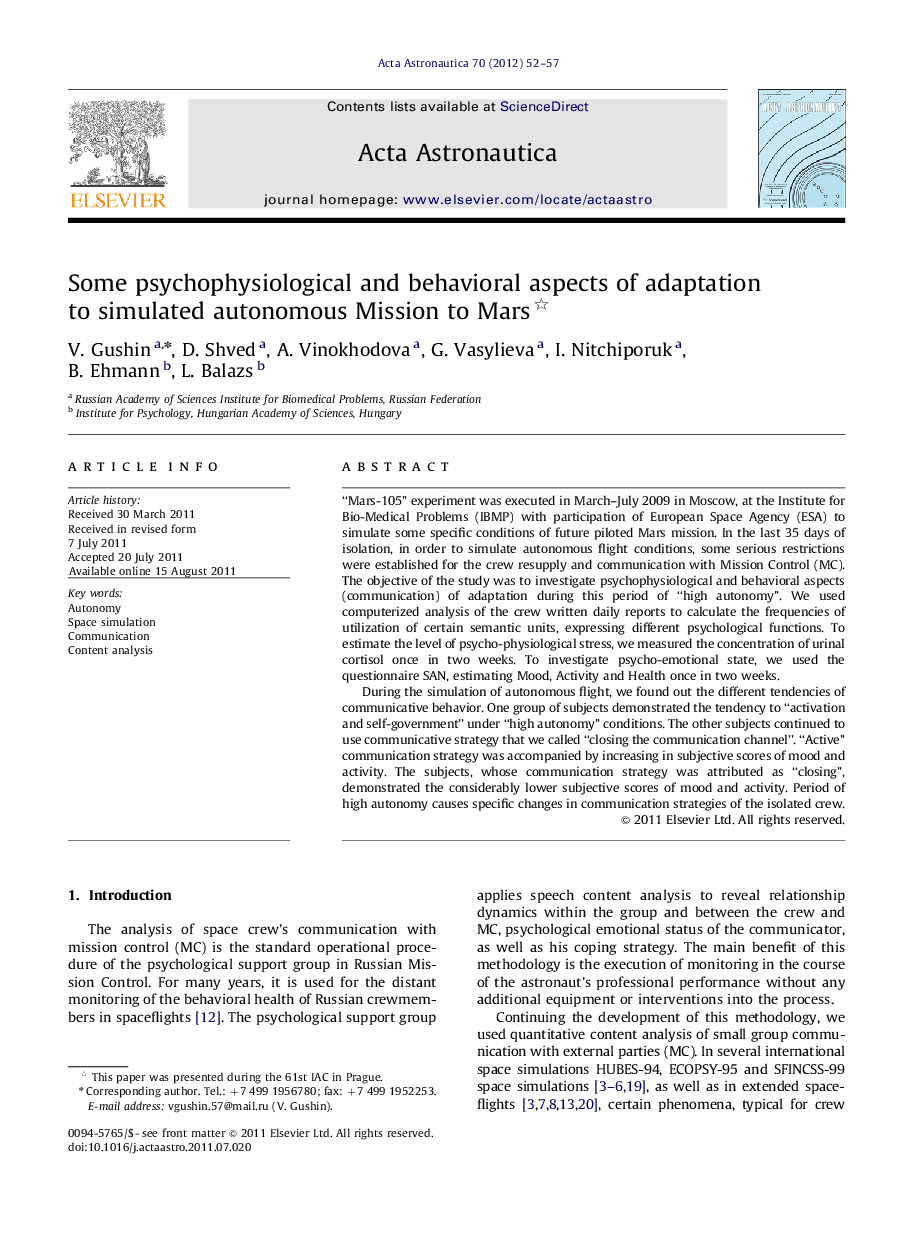| کد مقاله | کد نشریه | سال انتشار | مقاله انگلیسی | نسخه تمام متن |
|---|---|---|---|---|
| 1715379 | 1519978 | 2012 | 6 صفحه PDF | دانلود رایگان |

“Mars-105” experiment was executed in March–July 2009 in Moscow, at the Institute for Bio-Medical Problems (IBMP) with participation of European Space Agency (ESA) to simulate some specific conditions of future piloted Mars mission. In the last 35 days of isolation, in order to simulate autonomous flight conditions, some serious restrictions were established for the crew resupply and communication with Mission Control (MC). The objective of the study was to investigate psychophysiological and behavioral aspects (communication) of adaptation during this period of “high autonomy”. We used computerized analysis of the crew written daily reports to calculate the frequencies of utilization of certain semantic units, expressing different psychological functions. To estimate the level of psycho-physiological stress, we measured the concentration of urinal cortisol once in two weeks. To investigate psycho-emotional state, we used the questionnaire SAN, estimating Mood, Activity and Health once in two weeks.During the simulation of autonomous flight, we found out the different tendencies of communicative behavior. One group of subjects demonstrated the tendency to “activation and self-government” under “high autonomy” conditions. The other subjects continued to use communicative strategy that we called “closing the communication channel”. “Active” communication strategy was accompanied by increasing in subjective scores of mood and activity. The subjects, whose communication strategy was attributed as “closing”, demonstrated the considerably lower subjective scores of mood and activity. Period of high autonomy causes specific changes in communication strategies of the isolated crew.
► We investigated some aspects of adaptation to “high autonomy” in long-term isolation study.
► We found out two different tendencies (or strategies) of communicative behavior.
► One strategy is “activation and self-government”, and the other is “psychological closing”.
► The “active” strategy was accompanied by increasing in scores of mood and activity.
► The “closing” was accompanied with the considerably lower scores of mood and activity.
Journal: Acta Astronautica - Volume 70, January–February 2012, Pages 52–57